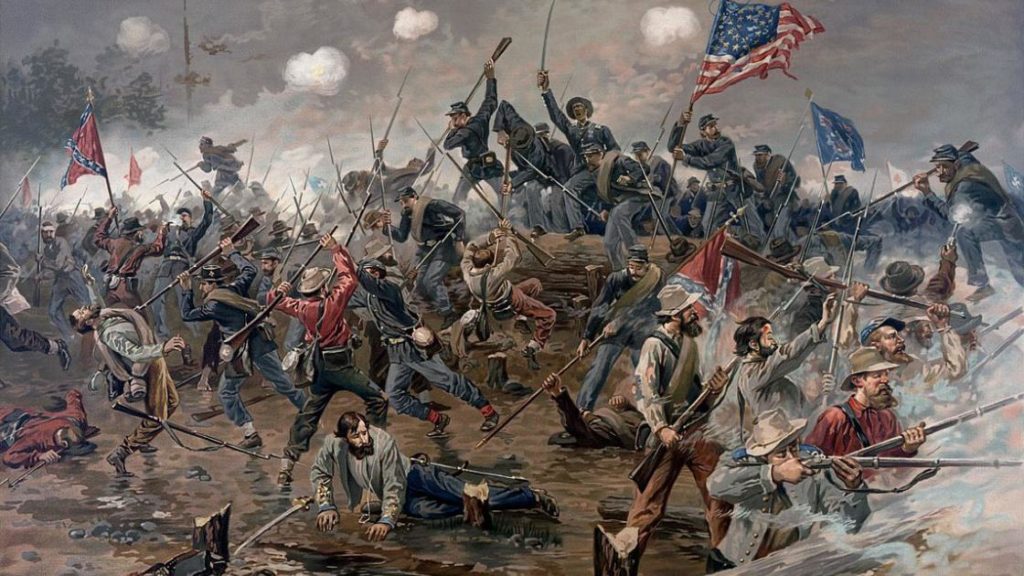
The seventh of Trevor Dupuy’s Timeless Verities of Combat is:
An attacker willing to pay the price can always penetrate the strongest defenses.
From Understanding War (1987):
No matter how alert the defender, no matter how skillful his dispositions to avoid or mitigate the effects of surprise or the effects of flank or rear attack, a skillful attacker can always achieve at least a temporary advantage for some time at a place he has selected. This is one reason why Napoleon always endeavored to seize and retain the initiative. In the great battles of 1864 and 1865 in Virginia, Lee was always able to exploit his defensive advantage to the utmost. But Grant equally was always able to achieve a temporary superiority when and where he wished. This did not always result in a Union victory—given Lee’s defensive skill—but invariably it forced Lee to retreat until he could again impose a temporary stalemate with the assistance of powerful field fortifications. A modern example can be found in the Soviet offensive relieving Leningrad in 1943. Another was the Allied break-out from the Normandy beachhead in July and August of 1944.
The exact meaning of this verity is tricky to determine, as the phrase “willing to pay the price” does a lot of work here. History is certainly replete with examples of Phyrric victories, where the cost paid for battlefield success deprived the attacker of any clear benefit. (The U.S. Civil War Battle of Chickamauga in 1863 would be an example in line with Dupuy’s description above.) Perhaps “willing and able to pay the price” would have been a better of way stating this. And, of course, no attack is guaranteed to succeed.
What Dupuy had in mind here is probably best understood in the context of two other of his verities “Offensive action is essential to positive combat results” and “Initiative permits application of preponderant combat power.” Even if the defensive may be the stronger form of combat, the offensive affords certain inherent potential advantages that can enable attackers to defeat the strongest of defenses if conducted effectively, sufficiently resourced, and determinedly pressed.
